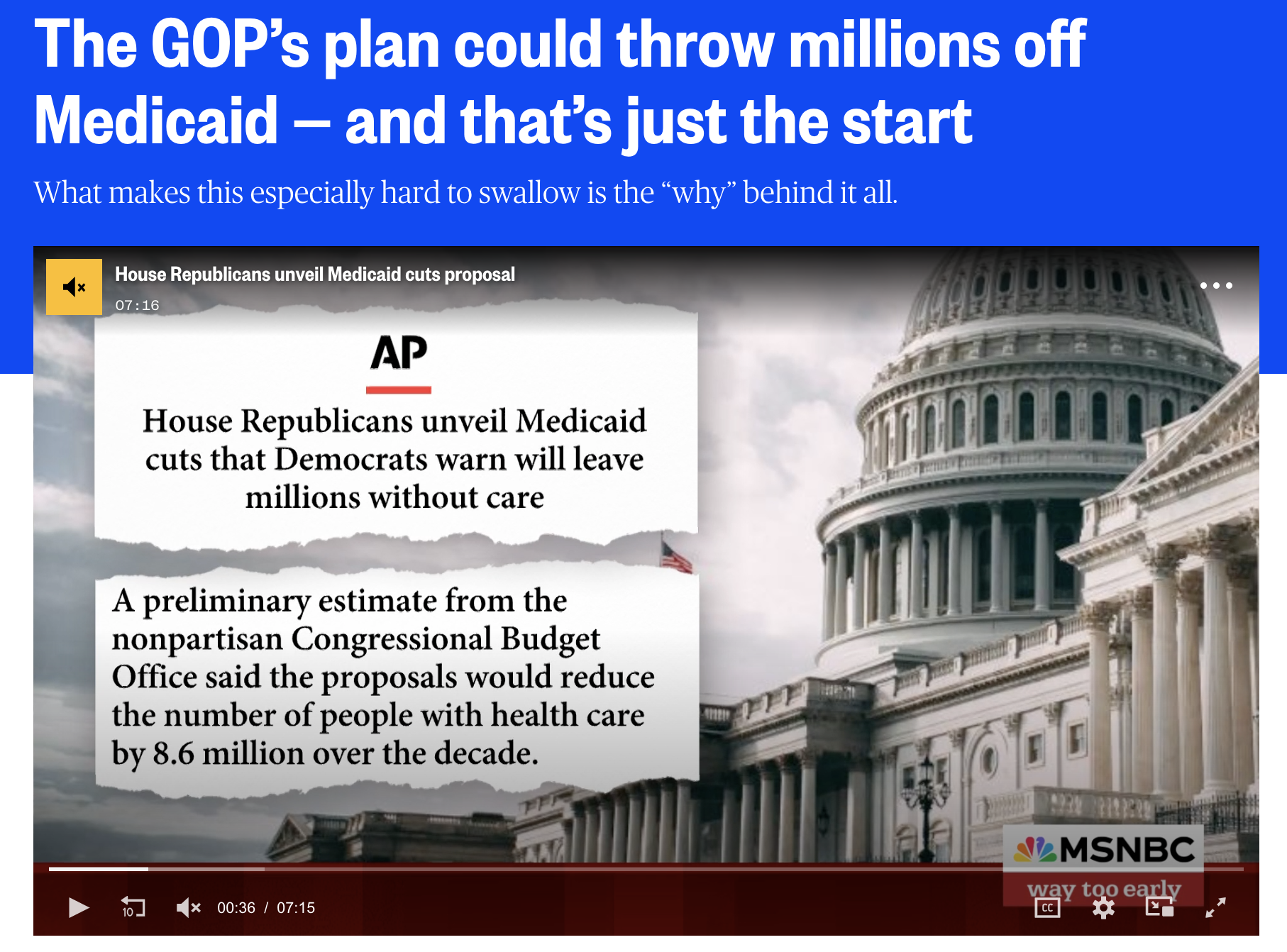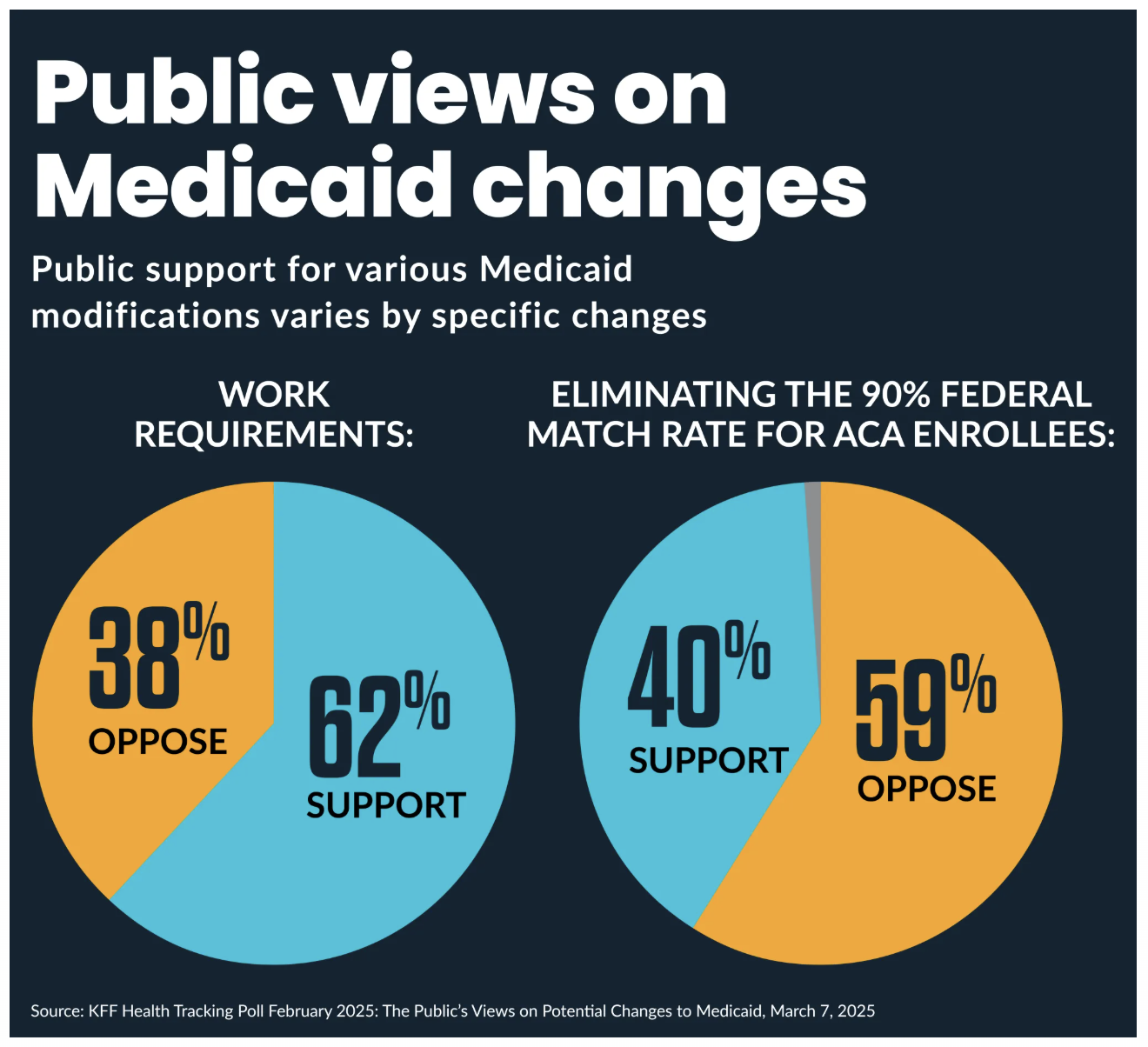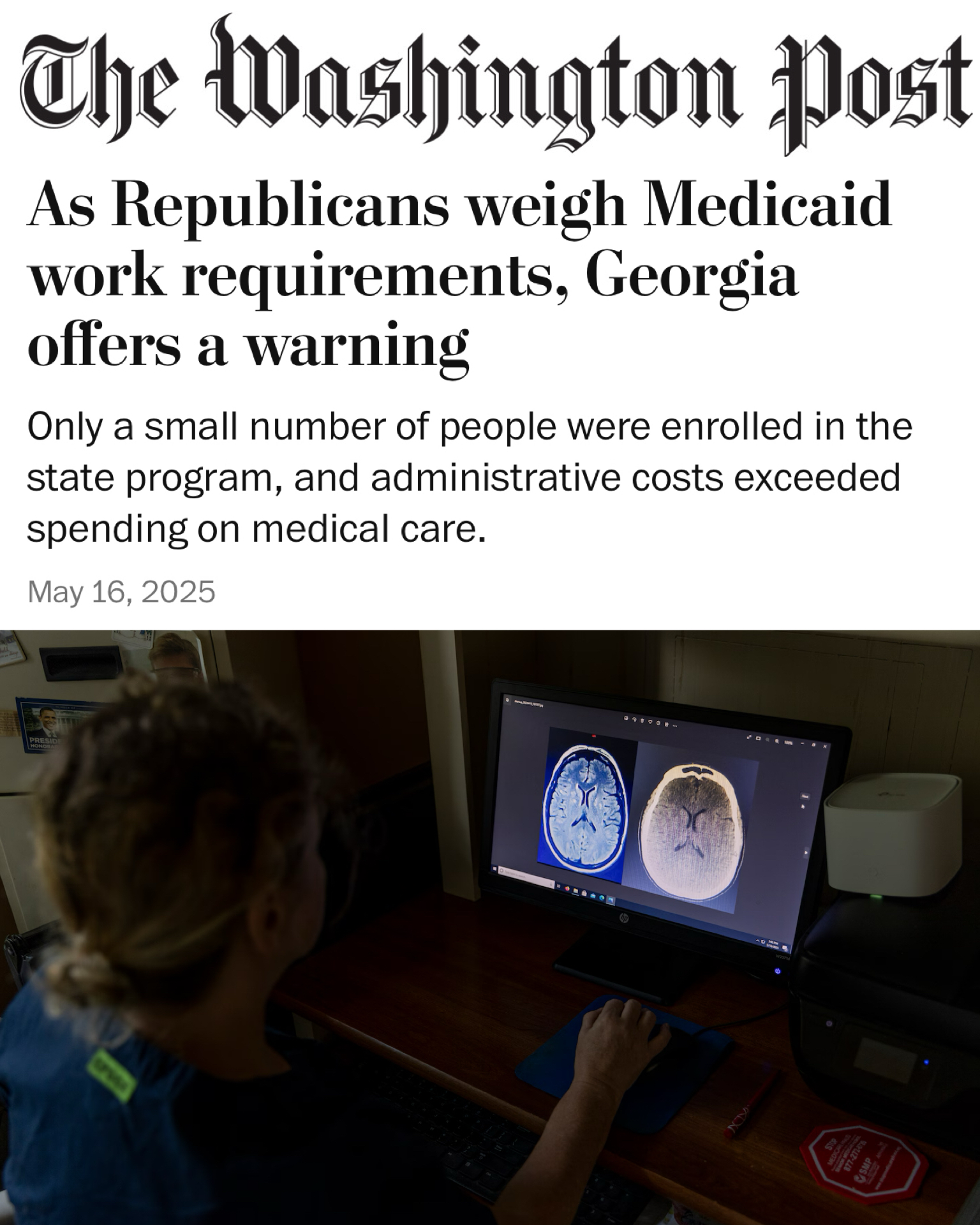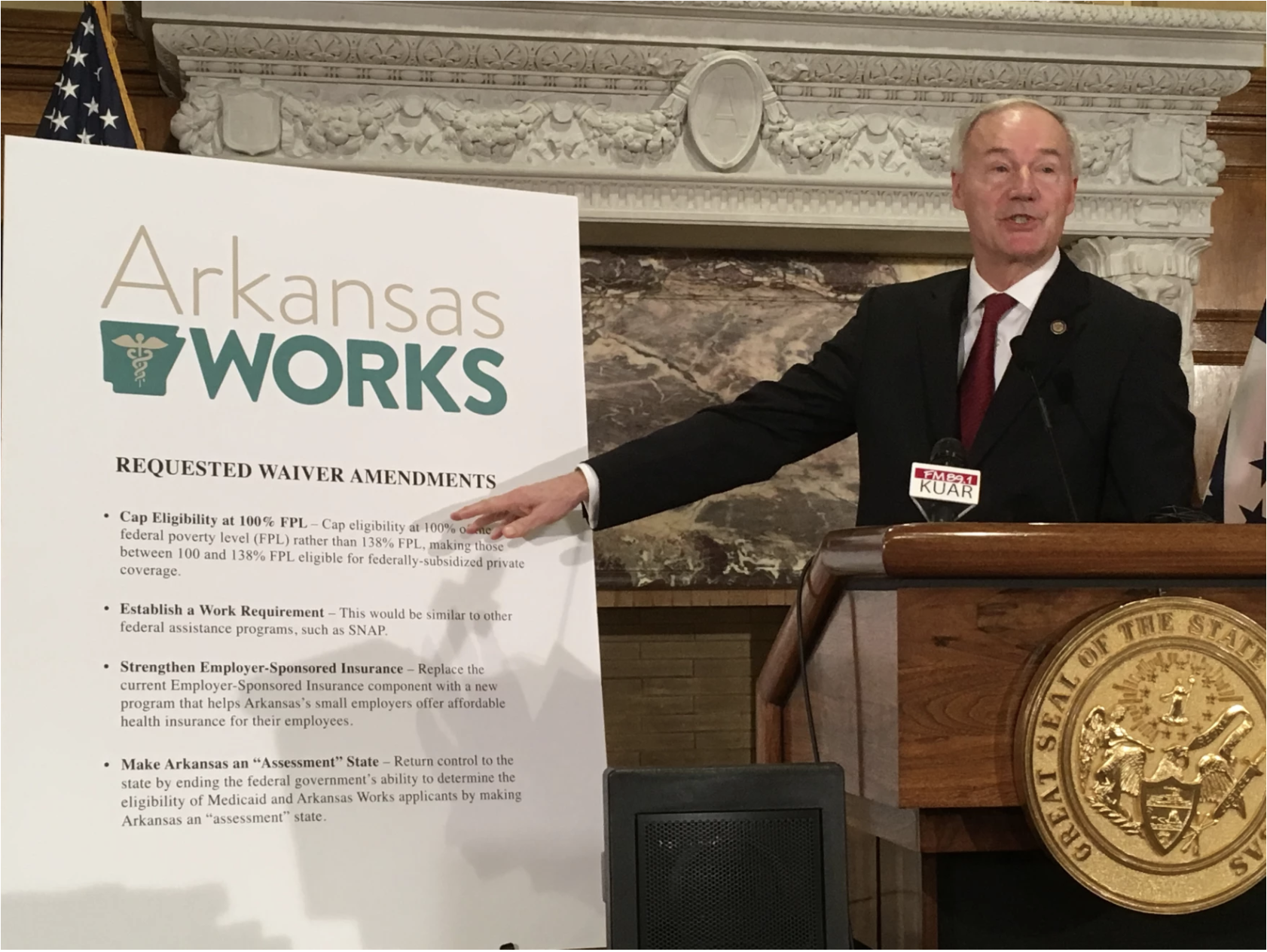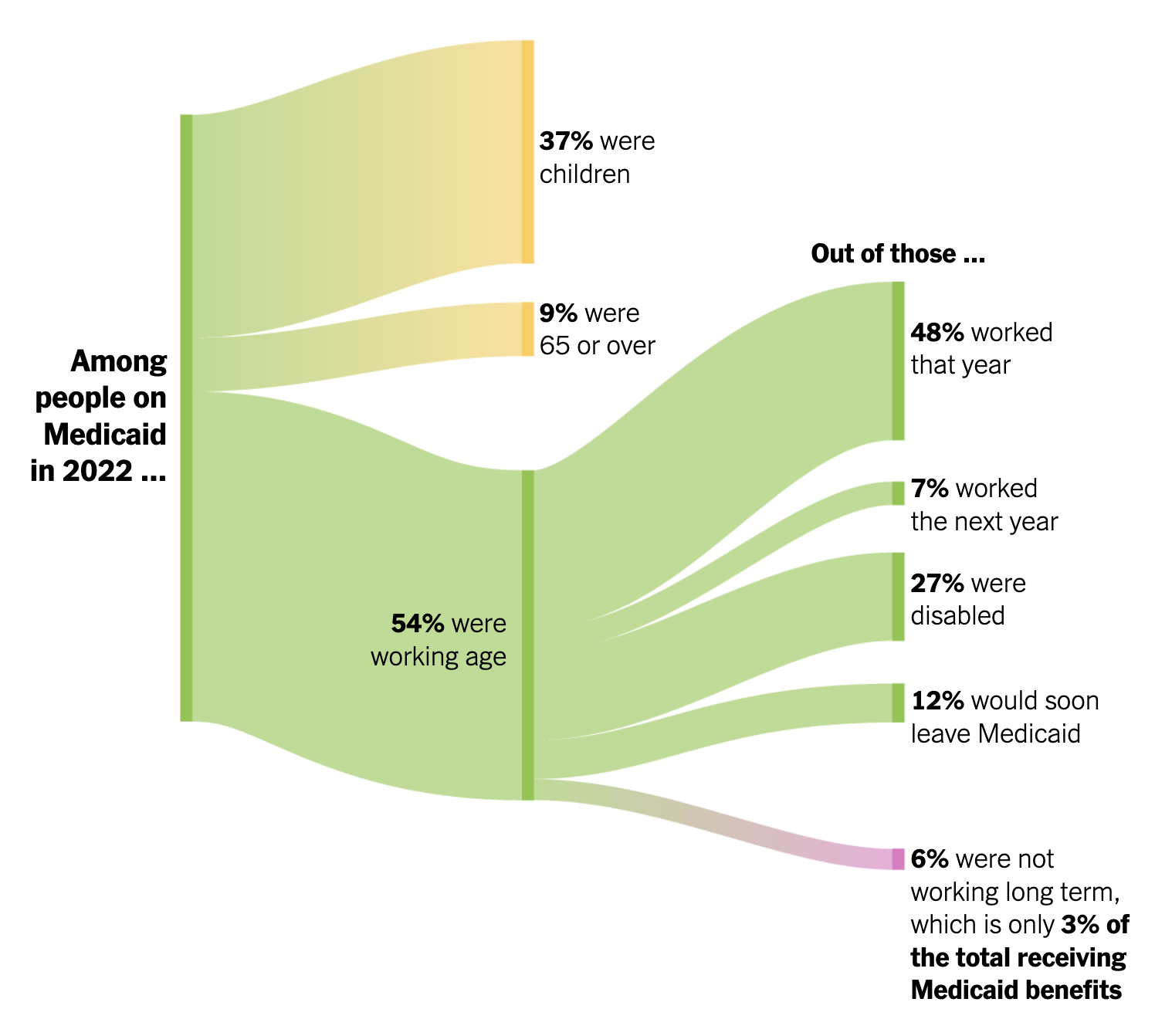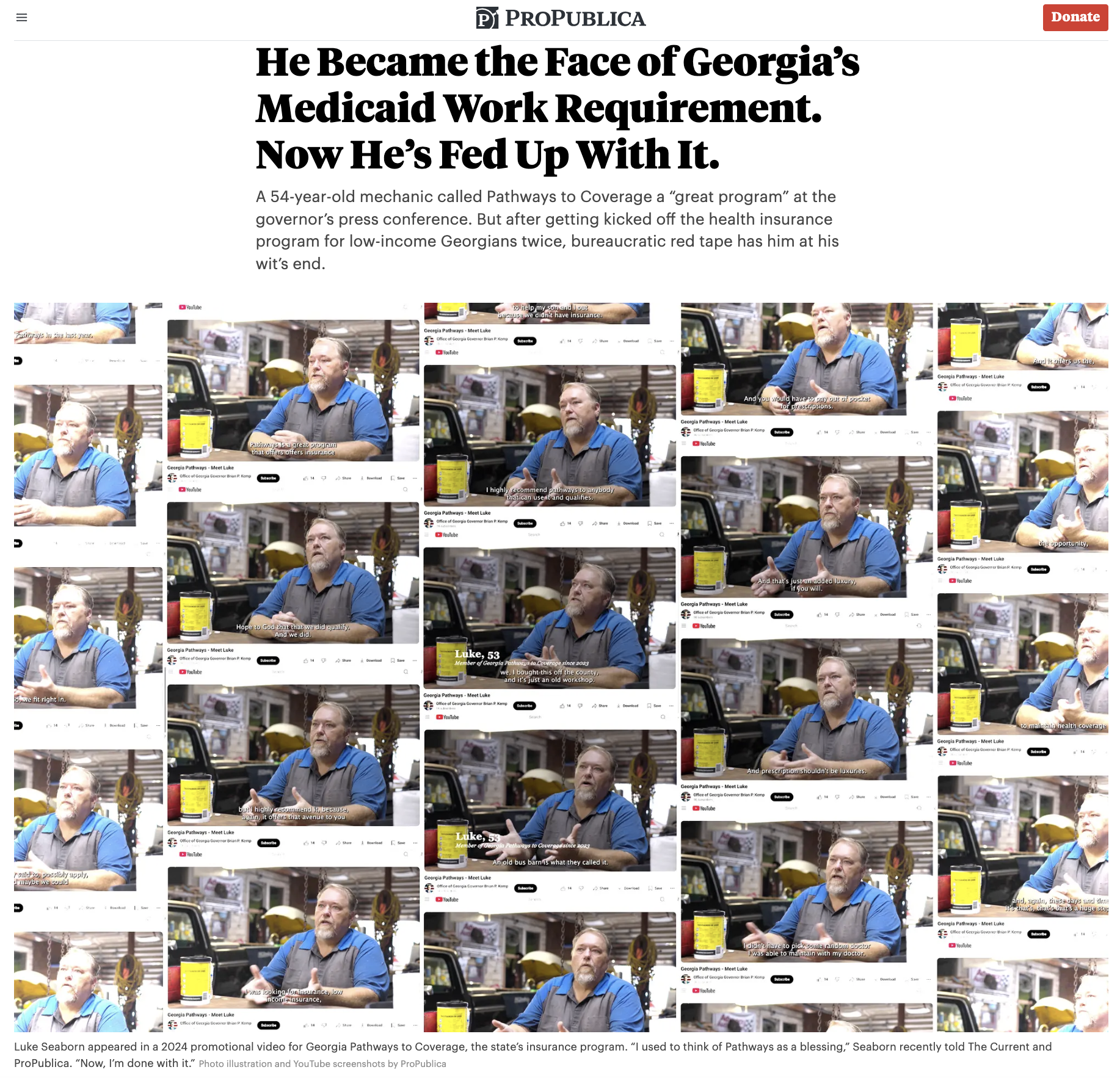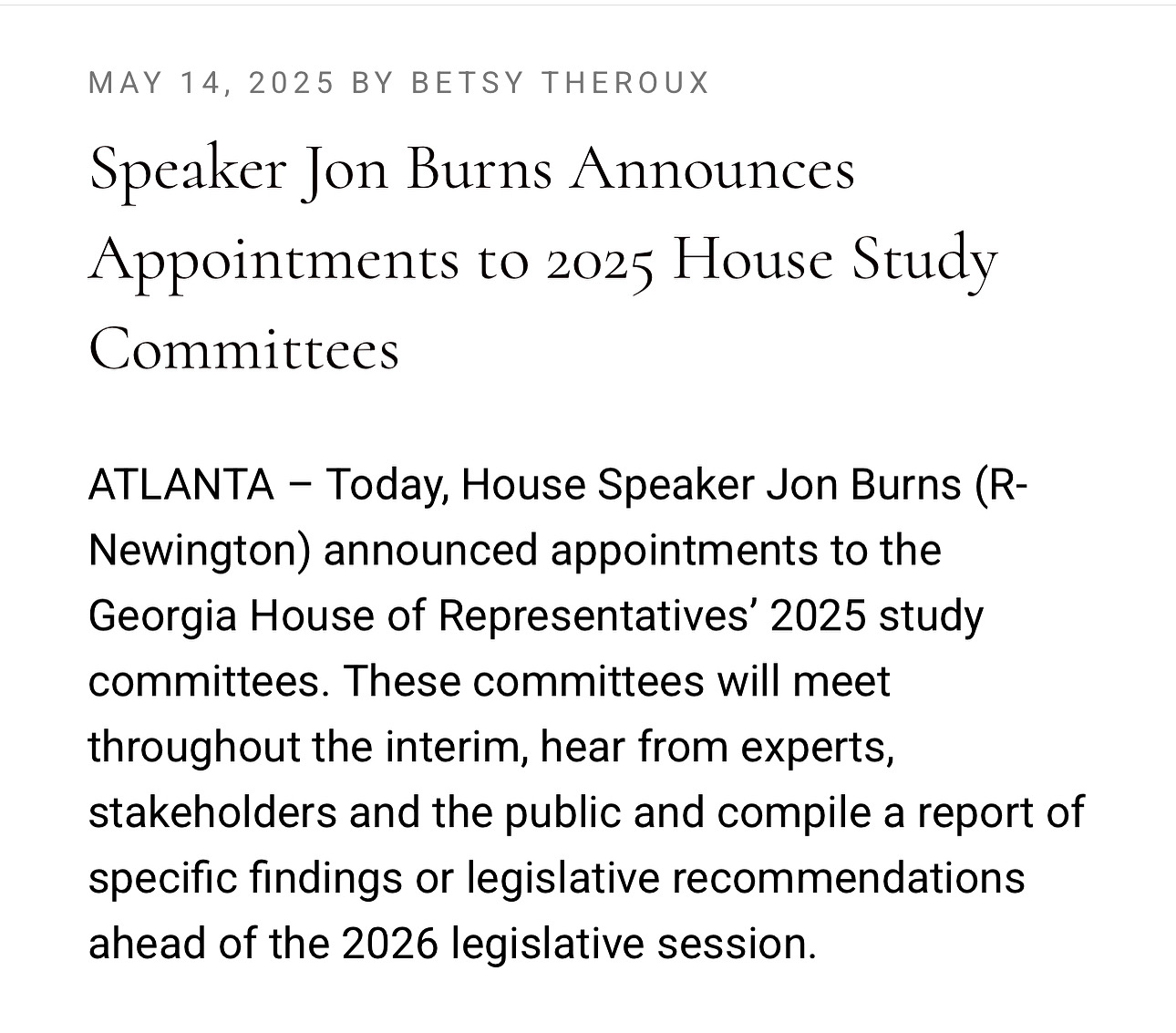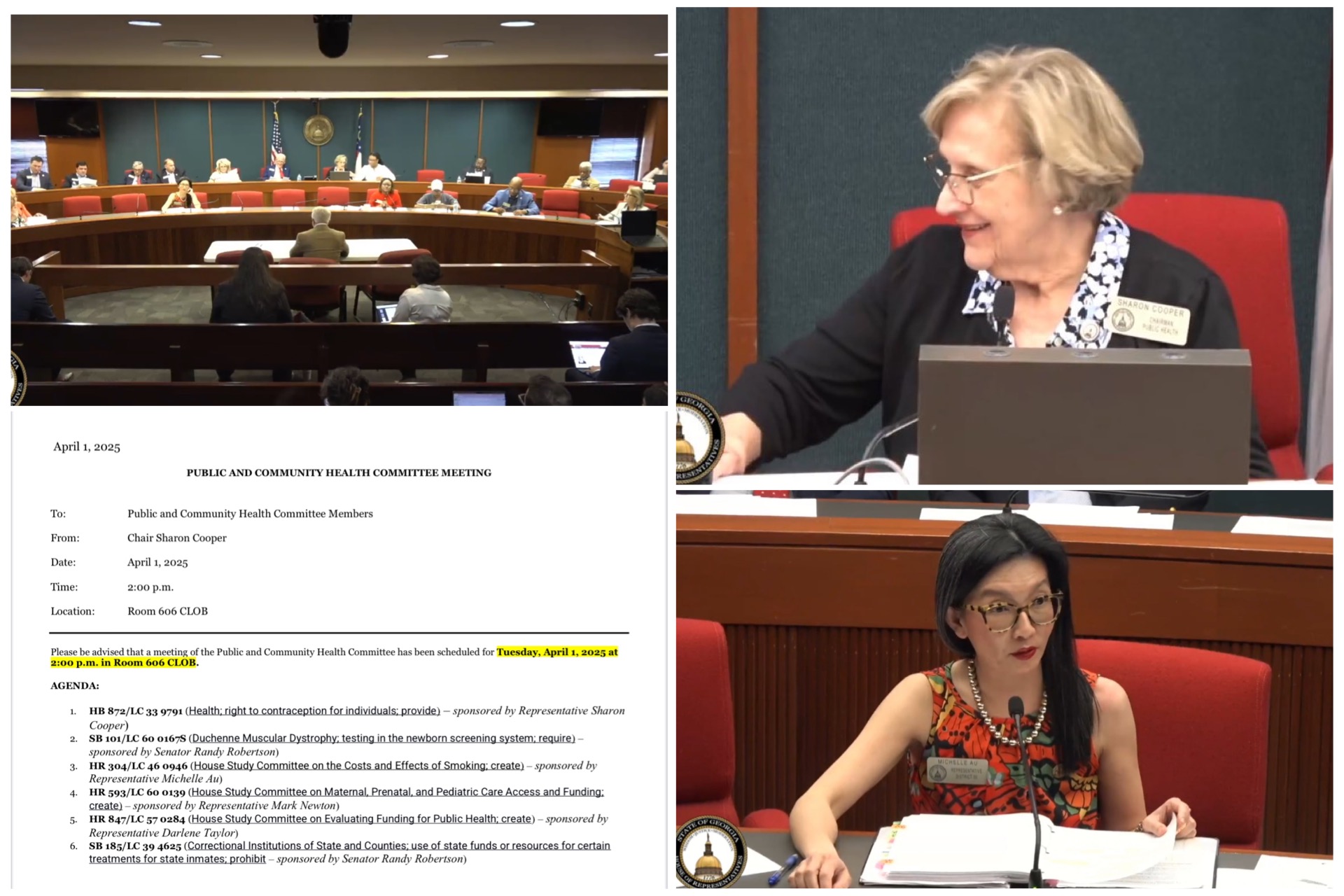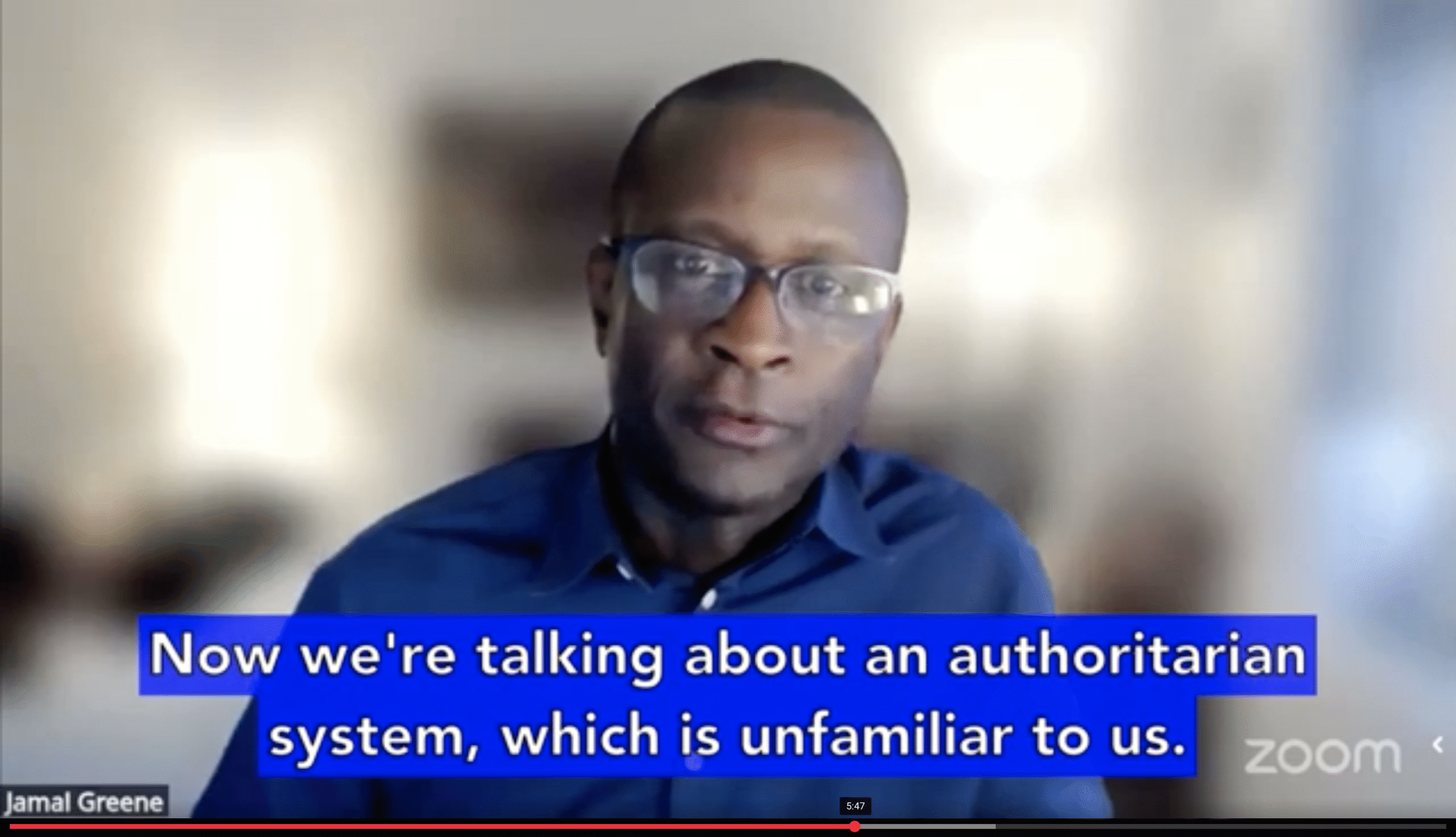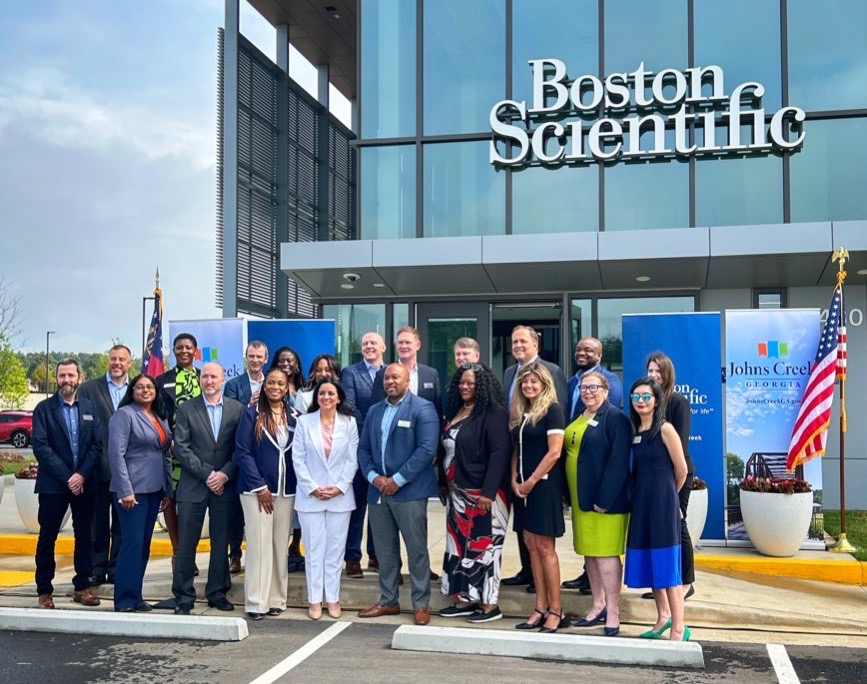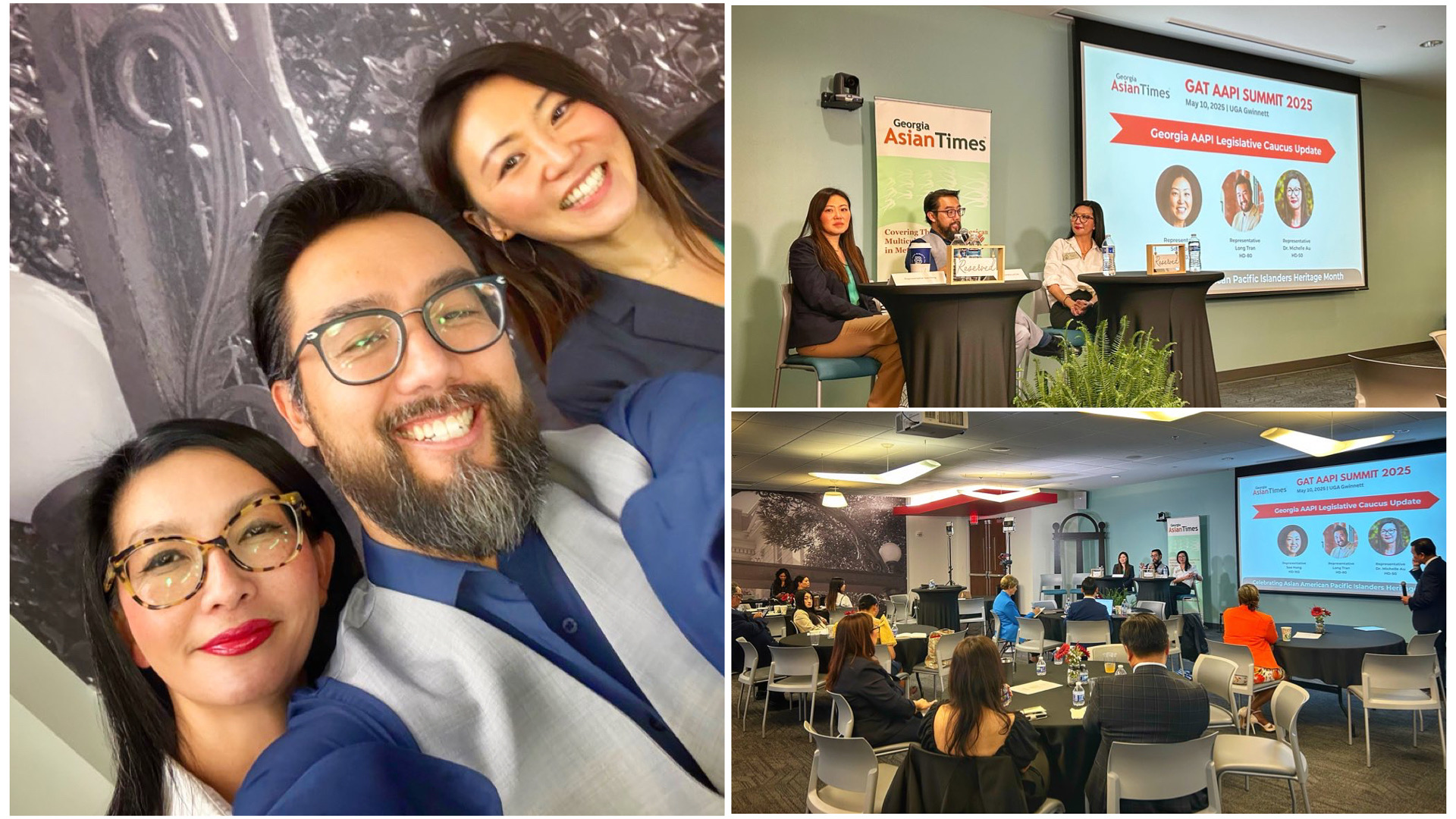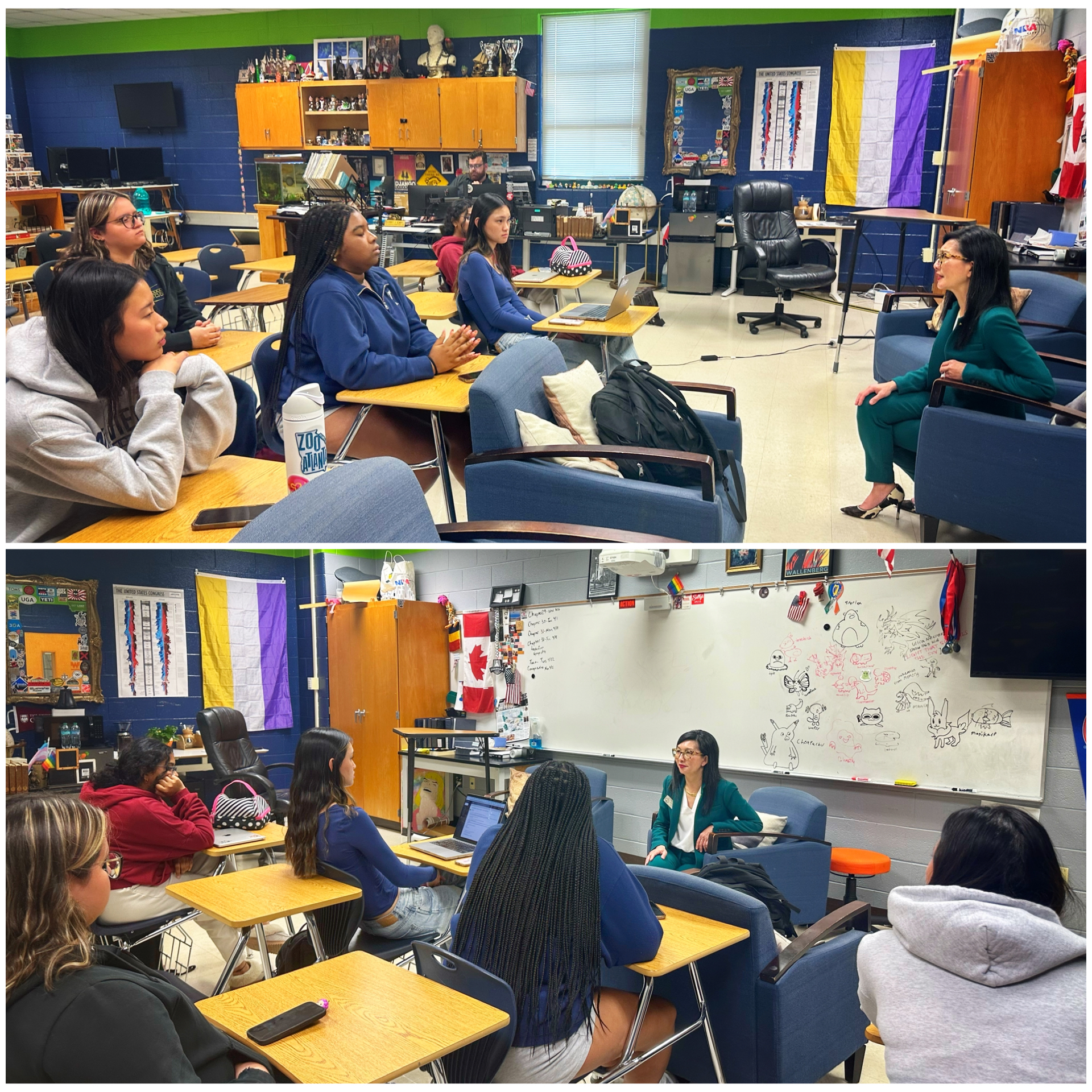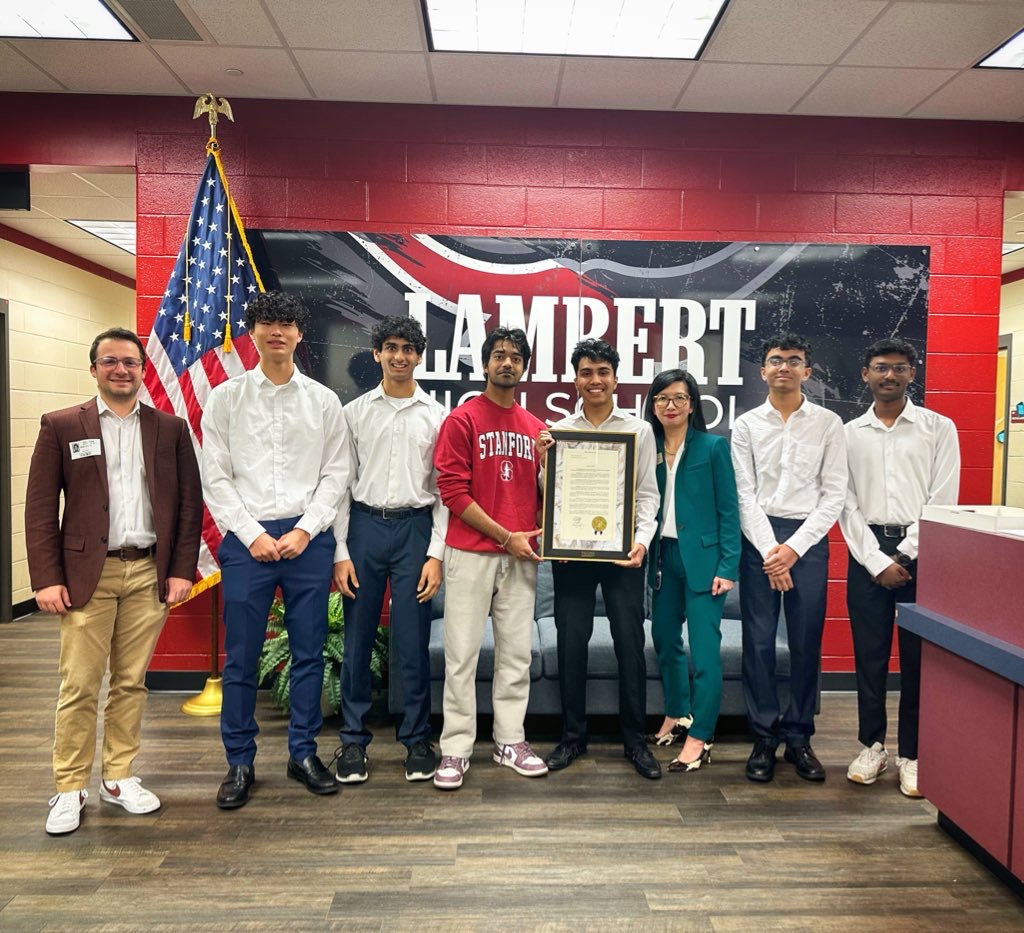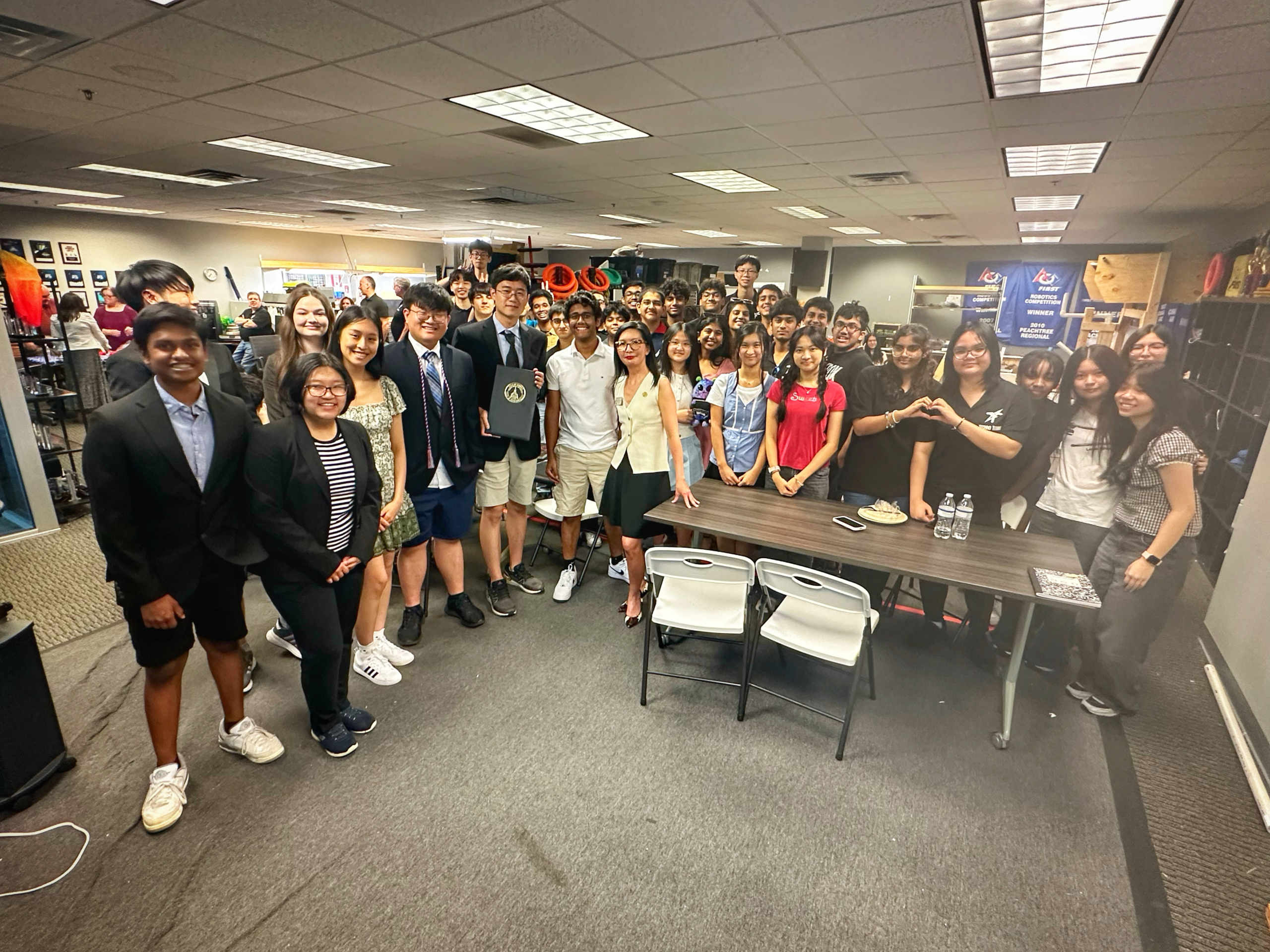Friends,
Georgia has what is euphemistically called a “part-time legislature,” which simply means that we are in session – working at the Capitol and passing bills – about three months of the year.
However, the work of a state representative spans the entire year, as even during the off session, we are busy doing work for our districts and across the state, attending meetings and planning events with constituents and stakeholders across a number of areas, and continuing to plan for how work at the federal level will impact us at the state and local level.
Of course, we could not do what we do without your support–thank you as always for helping us do this important work. Team Au has had a very busy off-season so far, with a lot planned for the summer. Let’s dive in.
MEDICAID WORK REPORTING REQUIREMENTS
Every month during the off-season I plan to pick one topic important to state policy and take a deep dive into its history, possible changes, and future impacts. This month we’re going to discuss Medicaid work reporting requirements, and how the changes Congressional Republicans are proposing in their budget package will affect healthcare access across the country.
Source: MSNBC
(Read full article and watch video here)
Currently the House Budget Committee is working through the long, contentious process of passing the federal budget, which includes massive cuts to Medicaid funding across all 50 states. Part of what is being put forth are Medicaid work reporting requirements, in which many childless Medicaid recipients under 65 years old would be required to confirm that they work, perform community service or participate in an educational or work program for at least 80 hours a month.
The nonpartisan Congressional Budget Office estimated that such requirements, coupled with other changes, would reduce the number of people with health insurance by more than 8 million by 2034.
Graphic credit: Healthcare Financial Management Association
It’s first important to acknowledge that, to many people, Medicaid work requirements seem to make sense. Often such requirements are framed as rooting out “waste, fraud, and abuse,” as low-income patients “taking personal responsibility,” and not being “dependent on the government” for “free healthcare.” These views are predicated on an assumption that large numbers of Medicaid patients are in fact choosing not to work, and taking advantage of the system rather than contributing to it.
These arguments are particularly familiar to us here in the Peach State, as Georgia is at present the only state in the nation with such a Medicaid work reporting requirement, also known as Pathways to Coverage.
It is for these reasons that Georgia should serve as a cautionary tale for how such Medicaid work reporting requirements fail to serve its programmatic goals, and how administrative costs have thus far far outpaced any investment in direct patient care.
Kendrick Brinson / The Washington Post
The fact is that, despite the abstract moralizing about what those receiving Medicaid owe to deserve healthcare coverage, work reporting requirements are misguided, counter-productive, and above all, cruel to many of the patients who need that coverage most.
Employers, not workers, are in charge of hiring, firing, and work hour scheduling decisions
In the United States, many people’s health coverage is tied to employment. That means that when people lose their jobs, as over 20 million workers were last year, they also lose their health insurance. It may take time for them to find new employment offering such insurance benefits. Medicaid can serve as a safety net for those workers who may have, often for circumstances outside their control, lost both their healthcare coverage and their jobs.
Shutting these patients out from the healthcare system at a time when they are already facing incredible financial pressure is not cruel, it defeats the fundamental purpose of Medicaid itself, which is to provide health coverage for low income individuals. Note that even workers who find new employment may not have much of a say on whether their employers will give them 80 hours per month, and for workers in more unstable industries or with more sporadic work schedules (again, factors outside their control), work reporting requirements may wall them off from coverage for which they are eligible.
History has shown that Medicaid work reporting requirements do not in fact lead to increases in employment and work
(Michael Hibblen / KUAR News)
Before Georgia became the only state in the nation to impose Medicaid work reporting requirements, Arkansas launched a similar program in 2018. This attempt was an unmitigated disaster, leading 18,000 adults to lose healthcare coverage in just 10 months. By June 2019 a federal judge put the policy on hold, and Arkansas has since fully expanded Medicaid under the Affordable Care Act.
An important lesson to learn from Arkansas is not just how the imposition of work reporting requirements led to a mass loss of coverage–losses that, even after they were corrected, continue to have long-term impacts–but that these requirements failed to boost the employment numbers in the state. This has been borne out in several studies since, demonstrating that “implementation of Arkansas’ work requirements policy was associated with an increase in uninsurance among the targeted age group and no significant change in employment or work effort.”
While conservatives seeking to cull the Medicaid rolls with the imposition of work reporting requirements justify them by citing a rise in workforce participation, it’s important to note that no such evidence exists that this policy is effective in serving that goal.
The number of non-working able-bodied adults on Medicaid is extremely small, and the cost cutting projected is disproportionate
Source: Current Population Survey, Census Bureau
Graphic by Taylor Maggiacomo / The New York Times
There are those among us, myself included, who believe that access to safe, quality healthcare is a right. While the American healthcare system has been largely built around a framework in which insurance access is tied to employment, we would find it anathema if, for example, low income individuals had to justify their access to police, the fire department, public education, libraries, and parks by reporting their work hours, and risked losing access any time they worked fewer than 80 hours per month.
The conservative rhetoric around Medicaid work requirements is predicated on the notion that large numbers of able-bodied, low-income patients are “getting something for nothing,” and taking advantage of a valuable societal service without contributing meaningfully to that society’s productivity. I do believe this narrative helps to sell the program to many, but we have to be honest that this is not in fact borne out in the data, which shows that only 3% of patients receiving Medicaid benefits long term are able-bodied working age adults.
Furthermore, imposing a work reporting requirement is not the same thing as ensuring that everyone who meets those work requirements has access to Medicaid. What we’ve seen quite vividly, particularly here in Georgia, is that the regulatory complexities, red tape, and bureaucracy inherent in these reporting systems lead many eligible working patients unable to accurately log hours they have in fact worked. This leads to patients losing coverage not because they are unemployed, but because the program has drowned them in paperwork, channeled through a reporting system that is systemically flawed.
The failures of Georgia’s Pathways to Coverage Program should be a cautionary tale to the rest of the nation
You Tube / Pro Publica
From our friends at the Georgia Policy and Budget Institute:
“In July 2023 Georgia launched the Pathways to Coverage program and became the only current state in the nation to offer Medicaid coverage to non-pregnant, non-disabled, low-income adults contingent upon completion and reporting of at least 80 hours per month of work, higher education, volunteering or other qualifying activities.
Key takeaways based on the program’s first year:
- Enrollment in the Pathways to Coverage program fell far short of expectations and need. More than 40% of Georgia’s counties still had fewer than 10 enrollees despite the state having one of the highest percentages of uninsured populations in the nation.
- A cumbersome enrollment process and restrictive eligibility criteria appeared to contribute to the program’s lack of success in the first year. Potentially eligible Georgians face a steep ‘paperwork’ burden – from completing a lengthy online or paper application to compiling documents to verify qualifying activities and hours, and only about half of individuals who showed initial interest in applying to the program submitted a complete application. Preliminary data also indicate that at least one in every five denials for those who do submit a complete application is due to failure to meet the qualifying hours and activities requirement.
- Pathways to Coverage is a costly program for Georgia taxpayers. Since the program was approved through the end of the first year of implementation, an average of $13,000 was spent per enrollee in combined state and federal funds. Spending on upgrades to Georgia’s online eligibility and enrollment system represents the largest proportion of total program costs and was almost five times higher than spending on healthcare benefits for enrollees.”
Arvin Temkar / Associated Press
Unfortunately, because Georgia is the only state in the nation with a Medicaid work reporting requirement in place, our failed system has become the de facto model for this conservative attempt to curtail Medicaid coverage across the country.
But let’s be clear–Medicaid is already an extremely lean program, and while any government program should seek to limit “waste, fraud and abuse,” there is very little fat to trim from a program that is already sinew and bone.
While the far right refuses to concede the reality of the math here, likely because so many of their constituents rely on Medicaid for coverage, the only way they can extract the projected $880 billion via cuts to the Medicaid budget is by ripping healthcare away from millions and millions of Americans.
2025 STUDY COMMITTEE APPOINTMENTS
While we are no longer officially in session, our work for the state goes on, and this year I’m pleased to have been appointed to two study committees, which will take on the task of analyzing complex issues and putting forth policy proposals for Georgia.
The first is the House Study Committee on the Costs & Effects of Smoking. This study committee will examine the cost of smoking, including short-term and long-term health care costs, the impact on our public and private health insurance programs, childhood health costs resulting from secondhand smoke exposure and the impact on workforce productivity resulting from the chronic health toll of tobacco smoke. This is a study committee I’ve been working on advancing for the past five years, and I am so gratified to have been appointed Vice Chair for the committee and to see us finally move forward gathering this important data for the state.
The second study committee on which I’ll be proud to serve is the Blue-Ribbon Study Committee on Insurance Rates. This committee will conduct a thorough examination of the insurance industry’s rate-setting practices, profit margins, claims processing and regulatory compliance to ensure that Georgia’s businesses, citizens and consumers are not being subjected to unjustified rate hikes.
With issues this complex, no single piece of legislation can reasonably address every aspect of the problems we face. However, the best way forward is a meticulous, systematic evaluation of data and processes, so we can best formulate solutions that further the goals of improving the lives of the people of Georgia.
Thank you to Speaker Burns and to the committee chairs for including me in this important work.
POST SINE DIE TOWN HALL
We hosted a very well-attended Post Sine Die Town Hall at the end of last month to discuss the events of the closing week of the 2025 legislative session, what bills passed and which languished, and what to attend to in the weeks and months ahead.
I am so grateful to have such an active, deeply engaged district, and it’s my honor to be able to keep you informed and to be your voice at the Capitol. We are at a point where the volatility in the federal administration is having huge effects on state level policy, and we spent quite a bit of time talking through what we might expect in the upcoming months.
In particular, I would keep an eye on the federal budget process, as Republicans are aiming for at least $1.5 trillion in cuts over the next decade, even as they intend to grow the deficit by extending Trump 1.0 tax cuts most benefitting the wealthiest among us.
Some key areas of investment Republicans have proposed cutting include:
- At least $600 billion in cuts to Medicaid and the Children’s Health Insurance Program (CHIP).
- More than $290 billion in cuts to the Supplemental Nutrition Assistance Program (SNAP).
- Other programs: The House Energy and Commerce Committee has been instructed to cut at least $880 billion, the Agriculture Committee at least $230 billion, and the Education and Workforce Committee at least $330 billion.
As Georgia has already passed our FY 2026 state budget at the end of the legislative session, I would not be at all surprised if we had to return to the Capitol for a special session to address the steep cuts we might see as some of the federal funding we have long relied on is slashed.
“CAN HE DO THAT?” WEBINAR
Earlier this month I was happy to be joined by my dear friend Professor Jamal Greene, constitutional law professor and former deputy assistant attorney general in the Office of Legal Counsel in the U.S. Department of Justice, for a discussion on the limits of presidential power in the setting of the norm-shattering second Trump administration.
In particular we focused on the actions of DOGE, the ruthless approach to immigration policy, and the brazen disregard for the Constitution. Here Professor Greene and I discuss what a “constitutional crisis” entails, and the dangerous time we’re currently living through.
The entire livestream of the webinar is archived here. Knowledge is power, so thank you to Professor Greene for helping Georgians understand the current peril to our democracy, and empowering us with the knowledge of how best to fight back.
UPCOMING EVENTS
We’re fast approaching the start of the summer, otherwise known as TRAUMA SEASON.
If you’ve ever considered donating blood, now is the time!
Join Team Au and our friends at Life South for our House District 50 Summer Kick-Off Blood Drive in front of Johns Creek City Hall on Wednesday, 5/21!
Haven’t been to Johns Creek City Hall before? Here’s a map. Afterwards, stay and enjoy lunch or shopping in Johns Creek, and check out the rapidly developing Boardwalk Park, soon to overlook our vibrant Town Center!
TEAM AU IN THE COMMUNITY
HANDS OFF OUR DEMOCRACY
Even in the norther suburbs of Atlanta, the historical seat of the Georgia Republican party, we’re seeing tremendous energy standing up to the Trump administration and defending our democracy.
Proud to join my constituents out on the streets to fight the good fight. Pay attention, raise your voices, and keep showing up.
THIRD ANNUAL HD 50 ORCHESTRA SHOWCASE
Delighted to host the Atlanta Festival Virtuosi for our 3rd annual HD 50 Orchestra Showcase at the Capitol! I was so pleased to be able to highlight the value of education in music and the arts, and giving a chance for our talented students to shine at The People’s House!
Congratulations to the William Pu Music Academy for another wonderful season. See you next year!
* * *
I was honored to join Mayor Bradberry, members of the Johns Creek City Council, and other Fulton County leaders at the ribbon cutting for the new Boston Scientific site in Johns Creek!
This state of the art new center brings 300 new jobs to the district, and establishes Johns Creek as a healthcare and biomedical science hub for the state. Congratulations to all involved in bringing this incredible business to the best district in Georgia to live, work, attend school, and raise a family!
* * *
So pleased to join Reps Long Tran and Soo Hong at the Georgia Asian Times AAPI Summit to discuss the 2025 legislative session and its effects on Georgia’s Asian American/Pacific Islander communities.
Thank you to Georgia Asian Times editor Li Wong for inviting us to participate, and congratulations on another fantastic summit!
TEAM AU STUDENTS IN ACTION
Loved visiting HD 50’s own Northview High School to talk with their Students Demand Action group (with our own Team Au fellows Sophie and Edwin) on the progress and frustrations we faced on gun violence prevention during the 2025 legislative session.
Especially here in a state like Georgia, we have not moved as quickly or decisely on this issue as we would want. But I encouraged the students to remember that evolutionary changes can happen slowly, then all at once.
Be patient, be persistent, and keep going.
* * *
Excited to present HR 862 to the Lambert High School Economics Team for winning First Place at the 2024 World Economics Cup, the theme of which was “The Dawn of a Tech-Driven New Economy.”
Congratulations Shivam, Ethan, Vivan, Balaskanda, and our very own Team Au fellows Arhan and Neal!
* * *
Enjoyed the chance to present HR 793 to the Johns Creek High School Future Business Leaders of America, honoring their hard hard work this year, and to recognize National FBLA Week!
Our very own Team Au Senior Policy Analyst Jeremy is a proud FBLA and JCHS alum, and these skills have served him well! Good luck to the entire team at the National Leadership Conference this summer!
* * *
A huge congratulations to the Northview HS Techno Titans for another fantastic year, and for your incredible showing at the high school robotics World Championship this Spring!
Team Au’s very own Bob Stevens has served as a mentor to this group for several years, and always keeps me abreast of their incredible commitment and success. I know how much time and work it takes to perform at this level, I am so proud of all you have achieved, and can’t wait to see what you build next year!
Are you a student interested in connecting with our office, or just want to come visit us in district or at the Capitol? Email cos@auforga.com!
* * *
It has never been more important to pay attention to the work of state legislatures. Thank you as ever for your support so that we can keep doing this most important work together.
As always, please do not hesitate to reach out to our office should you need any assistance, or if you have any concerns you’d like me to address on your behalf.
It is my honor to be your voice in the Georgia House of Representatives.
In service,




